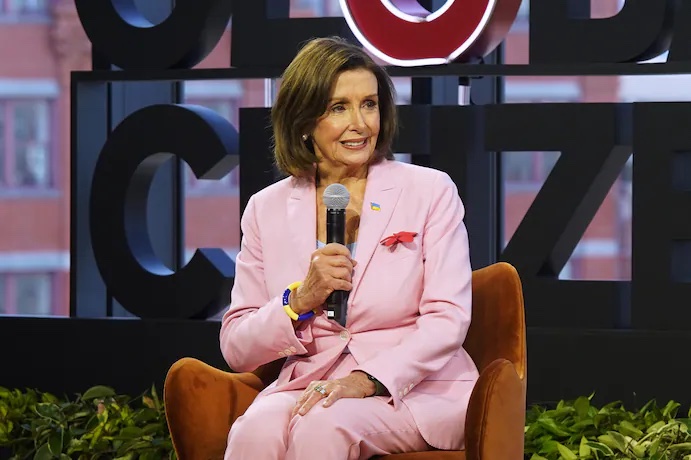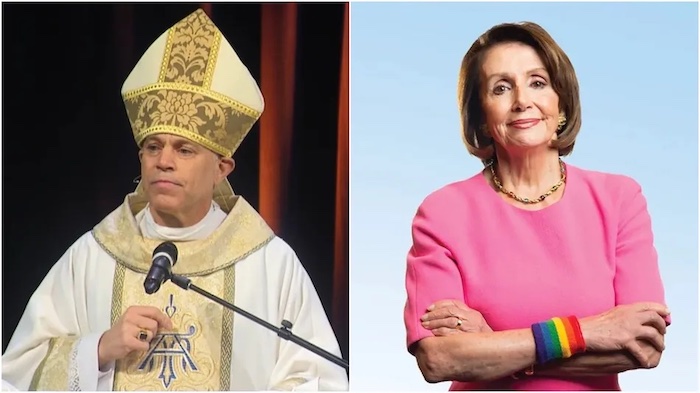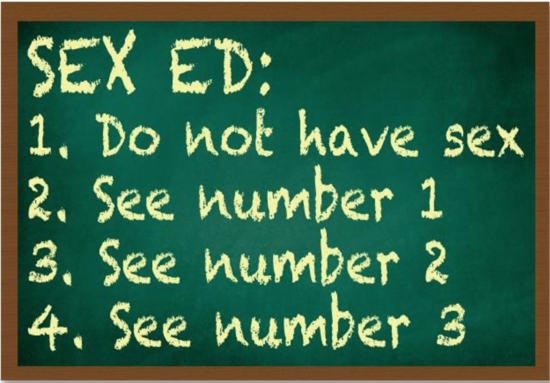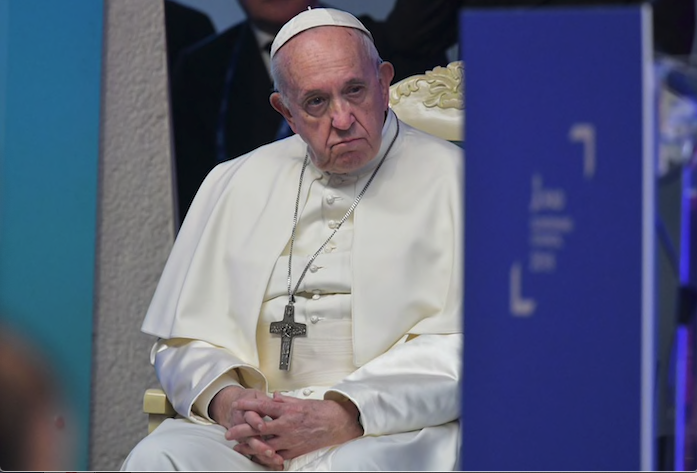
By Donna Cassata and John Wagner
House Speaker Nancy Pelosi (D-Calif.) on Tuesday questioned whether a San Francisco archbishop who said he would deny her Communion over abortion rights was using a double standard by allowing politicians who support the death penalty to receive the sacrament.
“I wonder about the death penalty, which I’m opposed to. So is the church, but they take no actions against people who may not share their view,” Pelosi said in an interview on MSNBC’s “Morning Joe.”
On Friday, the Most Rev. Salvatore J. Cordileone, the Catholic Church’s archbishop in San Francisco, said Pelosi would be denied Communion because of her vocal support for abortion rights, a stunning rebuke of one of the nation’s most senior practicing Catholic politicians, who often evokes her faith when discussing her family and politics.
“After numerous attempts to speak with her to help her understand the grave evil she is perpetrating, the scandal she is causing, and the danger to her own soul she is risking, I have determined that the point has come in which I must make a public declaration that she is not to be admitted to Holy Communion unless and until she publicly repudiate her support for abortion ‘rights’ and confess and receive absolution for her cooperation in this evil in the sacrament of Penance,” Cordileone said Friday in a letter to members of his archdiocese.
“I have accordingly sent her a Notification to this effect, which I have now made public,” he added.
Cordileone, one of the country’s most conservative Catholic leaders, last year called for Communion to be withheld from public figures who support abortion rights but did not mention Pelosi by name at the time. In November, U.S. Catholic bishops backed away from a direct confrontation with President Biden, the second Catholic president, over his support for abortion rights and the sacrament of Communion. They approved a document on the Eucharist that did not mention any politicians or the president.
In the MSNBC interview, Pelosi challenged the notion of imposing her personal views on abortion on others and highlighted Cordileone’s pronouncements on other issues, such as gay rights.
“We just have to be prayerful, we have to be respectful. I come from a largely pro-life Italian American Catholic family, so I respect people’s views about that, but I don’t respect us foisting it onto others,” she said. “Now our archbishop has been vehemently against LGBTQ rights. He led the way in some of the issues, an initiative on the ballot in California. So this decision … is very dangerous in the lives of so many of the American people. They’re not consistent with the Gospel of Matthew.”
Democrats and abortion rights advocates have responded with alarm in recent weeks after the leak of a draft Supreme Court opinion that would overturn the right to abortion established in the landmark Roe v. Wade decision.
Holy Communion is the central sacrament of Catholicism and the centerpiece of the Catholic Mass — a ritual memorial of Christ’s death on the cross in which bread and wine are said to be transformed into his flesh and blood.
Catholic archbishops have vast power within their diocese, and a reversal of Cordileone’s decision would require the intervention of the Vatican, which is unlikely. The order to deny Communion to Pelosi applies only to Catholic churches within the San Francisco archdiocese under Cordileone’s purview, including the speaker’s home church.
Last September, Pope Francis said the decision about granting Communion to politicians who support abortion rights should be made from a pastoral point of view, not a political one. He told reporters: “I have never refused the Eucharist to anyone,” while adding that he has never knowingly encountered during Communion a politician who backs abortion rights. Francis, however, reiterated that abortion is “murder.”
According to a Washington Post-ABC News poll released earlier this month, 55 percent of Catholics in the United States want the Supreme Court to uphold Roe. Catholic teaching opposes abortion, however, and the U.S. Conference of Catholic Bishops last year debated the meaning of Communion and whether it is appropriate to withhold the sacrament from Catholic politicians, such as Pelosi or Biden, who support abortion rights.< After a firestorm of debate, the bishops clarified that there will be “no national policy on withholding Communion from politicians.” They later released a document on Communion but declined to single out politicians who back abortion rights.
After Cordileone last year condemned a bill codifying the constitutional protections of Roe v. Wade into federal law as an “atrocity” and “nothing short of child sacrifice,” Pelosi acknowledged a “disagreement” with the prelate.
“I believe that God has given us a free will to honor our responsibilities,” she said, before again talking about her own family.
“For us, it was a complete and total blessing, which we enjoy every day of our lives,” Pelosi added. “But it’s none of our business how other people choose the size and timing of their families.”
Complete Article ↪HERE↩!




